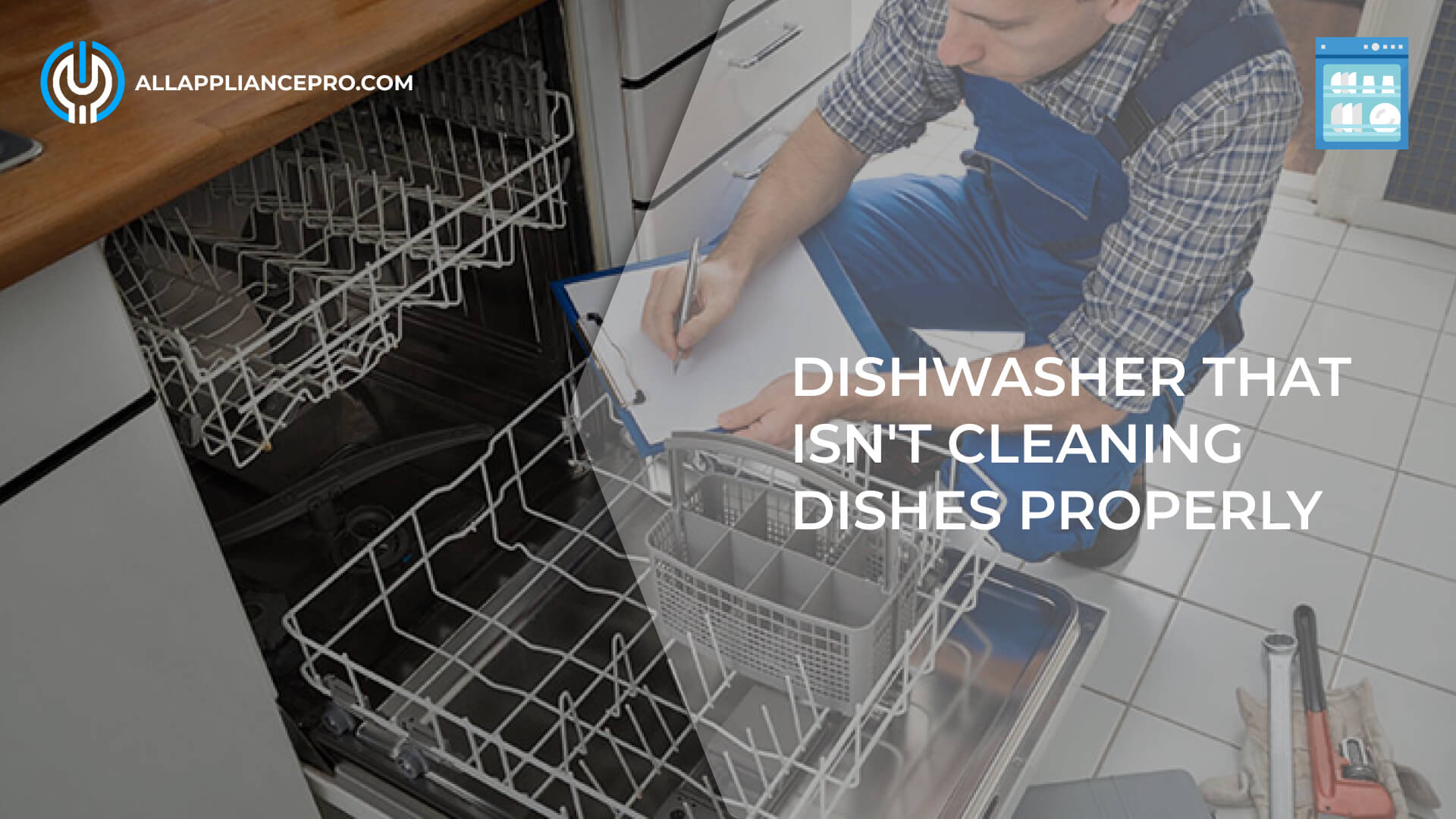Dishwashers That Don't Clean Dishes Well

A dishwasher is an indispensable appliance in many households, saving time and effort when it comes to cleaning dirty dishes. However, it can be frustrating when your dishwasher isn't working well, and dishes come out still dirty even when you've ruled out a plumbing issue. In this guide, we will explore the most common problems and their solutions to help you get your dishwasher back in optimal working condition.
Insufficient water flow
One of the primary reasons for a dishwasher not cleaning dishes properly is inadequate water flow. The water should reach every corner of the dishwasher to ensure thorough cleaning. To fix this issue, follow these steps:
a. Check the water inlet valve: Make sure the water inlet valve is open and functioning correctly. If it's clogged or damaged, it may need to be replaced.
b. Inspect the float switch: The float switch controls the water level in the dishwasher. If it's malfunctioning or stuck, the water level may be too low. Clean or replace the float switch as necessary.
Improper detergent usage
Using the correct detergent and the right amount is crucial for the dishwasher's effectiveness. To ensure optimal cleaning, consider these tips:
a. Choose the right detergent: Make sure you're using a detergent specifically designed for automatic dishwashers. Do not use regular dish soap, as it can cause excessive suds and compromise the cleaning process.
b. Measure detergent accurately: Follow the manufacturer's recommendations on the amount of detergent to use. Overusing or underusing detergent can both lead to poor cleaning results.
Clogged or malfunctioning spray arms
The spray arms distribute water throughout the dishwasher during the washing cycle. If they are clogged or not working correctly, the dishes won't be adequately cleaned. To resolve this issue:
a. Clean the spray arms: Remove the spray arms and use a soft brush or toothpick to clean the holes where water comes out. Rinse them thoroughly before reinstalling.
b. Check for proper rotation: Ensure that the spray arms can rotate freely without any obstructions. If they are damaged, you may need to replace them.
Overloading the dishwasher
Overloading the dishwasher can prevent dishes from being cleaned effectively. To avoid this problem:
a. Load dishes properly: Follow the manufacturer's guidelines for loading dishes and avoid overstuffing the dishwasher. Make sure there is enough space between items to allow water to reach all surfaces.
b. Use the correct cycle: Choose the appropriate cycle for the type and amount of dishes being washed. Heavy-duty cycles are best for larger loads and more heavily soiled items.
Dirty or malfunctioning filters
The dishwasher filter plays a vital role in keeping the water clean and free of debris. If it's dirty or malfunctioning, the dishes won't get clean. To address this issue:
a. Clean the filter: Remove the filter and clean it thoroughly. Most filters can be cleaned with warm, soapy water and a soft brush.
b. Replace the filter if necessary: If the filter is damaged or excessively dirty, it may need to be replaced.
Conclusion
If your dishwasher isn't cleaning dishes well and you've ruled out plumbing issues, try addressing the common problems outlined in this guide. By taking the time to troubleshoot and fix your dishwasher, you can restore its cleaning capabilities and enjoy the convenience of sparkling clean dishes with minimal effort.


